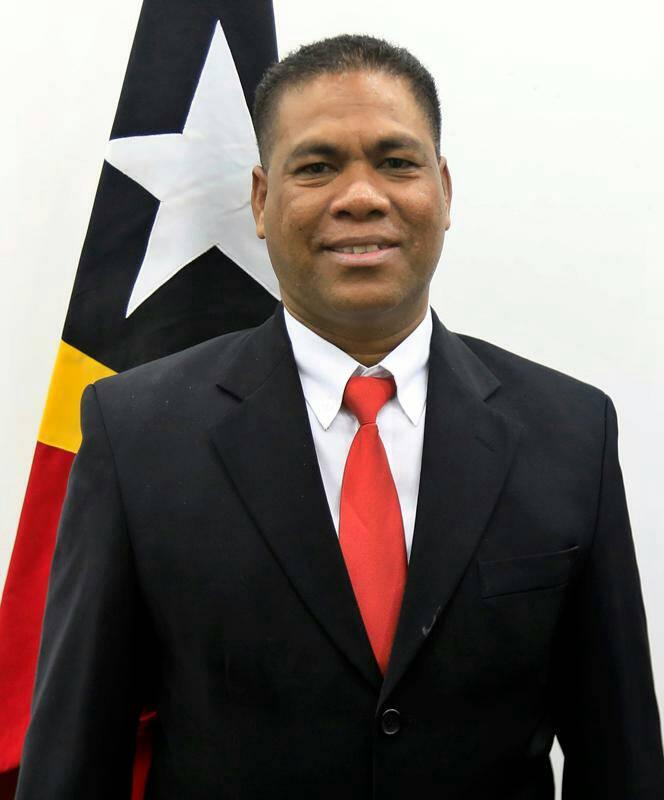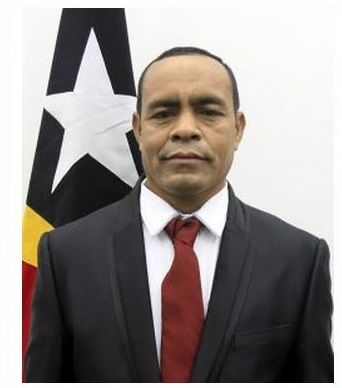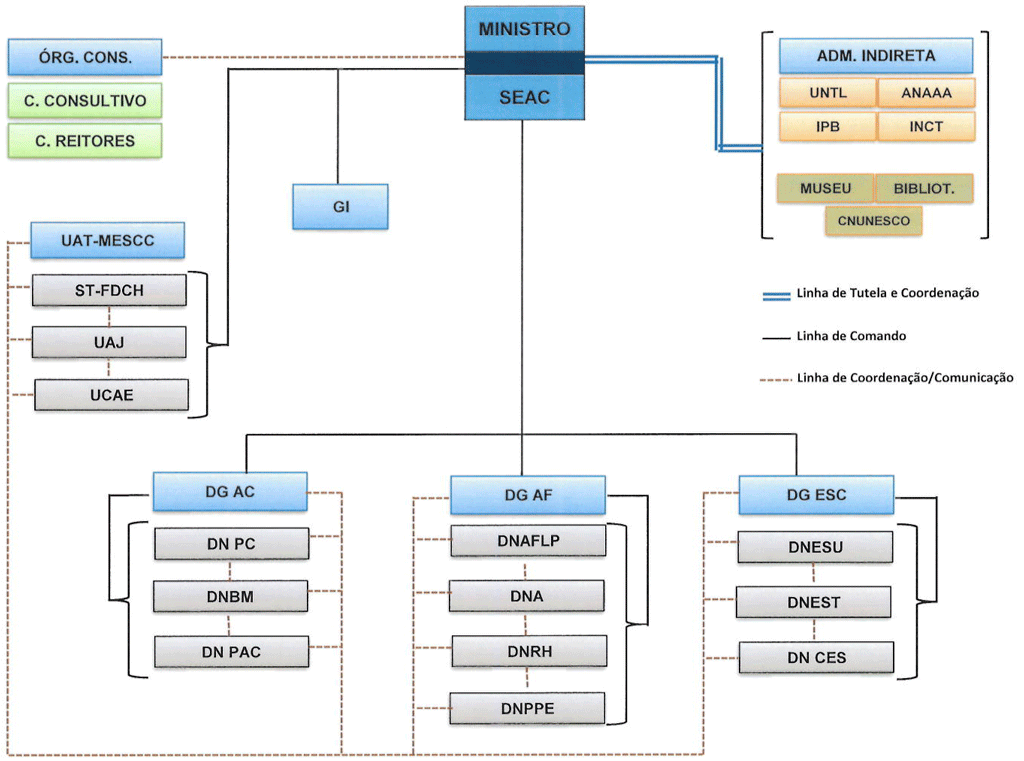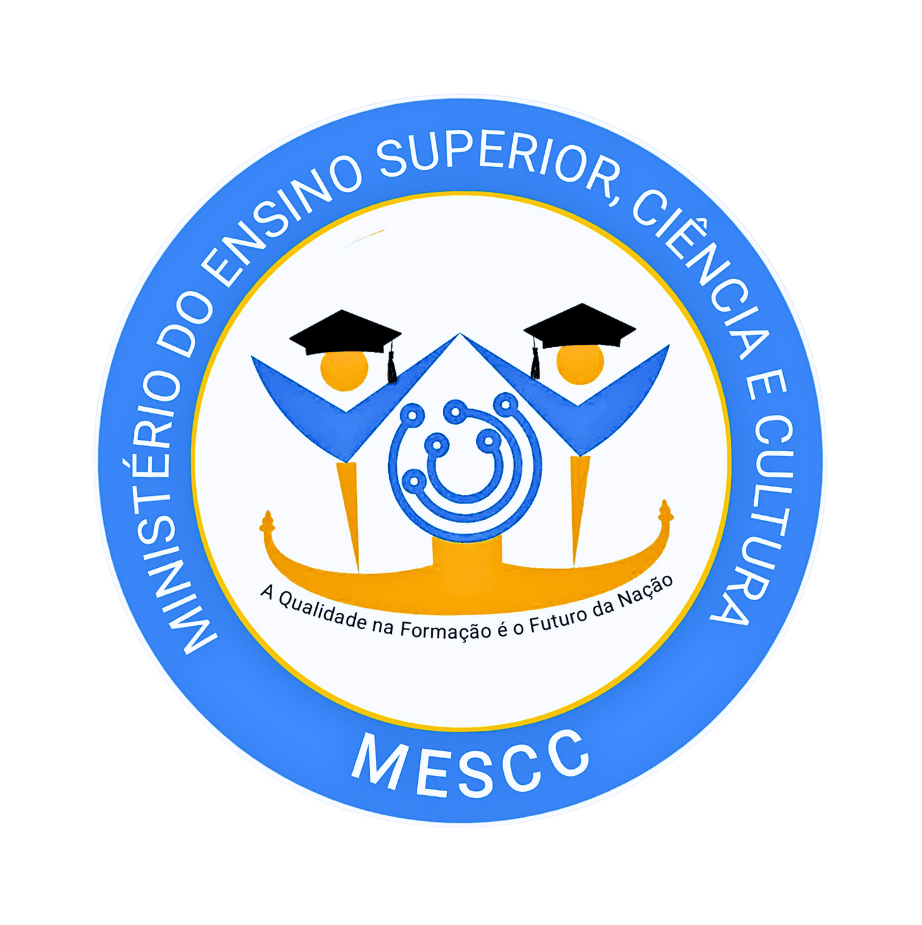Ministério do Ensino Superior, Ciência e Cultura
“A Qualidade na Formaçao é o Futuro da Naçao”

Biography of Minister of Higher Education ,Science and Culture
His Excellency Mr. Longuinhos dos Santos was born on July 4th, 1974, in Bobonaro, Administrative Post of Maliana. From 1982 until 1991, he attended primary and pre-secondary school in Maliana and completed secondary school (SMEA) in Liquica, in 1994. During the period of Resistance, joined the Clandestine movement, with the resistant code name “ELEZON”, until 1999. In 2001, H.E. continued his studies at the National University of Timor Lorosa’e (UNTL), at the Faculty of Economics, Majoring in Economics Management, having graduated in 2007.
From 2020 until 2011, H. E. proceeded his Master Degree in Economic Management at the University of Kristen Satya Wacana (UKSW) Sala Tiga, in Indonesia. In 2012, he became a Permanent Lecture at the Faculty of Economic & Management, at the National University of Timor Lorosa’e, and assumed the role as Vice-Dean of the Department of Commerce and Tourism.
Alongside all the experiences and job positions mentioned above, H.E has also been involved in other professional positions such as:
Member of the Dialogue Commission for Community Re-integration in Bebonuk (2006);
Vice-President of the Fiscal Council in the Federation of Academic Sport of Timor-Leste (2013);
Coordinator for research, of the Faculty of Economic & Management of UNTL, with the Ministry of Commerce, Industry and Environment (2014);
Leading Public Debate about Gender in the Faculty Level (2015);
Co-founder of the Liberation Popular Party (2015), elected to be the First Vice-Coordinator for Dili and member of the National Legal Commission (2017-2022);
President of the Organizing Commission of Academic Ceremony (2016).
In 2017, H. E. participated in the Trilateral Round Table Meeting that involved Australia, Indonesia and Timor-Leste, held in Charles Darwin University, in Australia. On June 22nd 2018, Longuinhos dos Santos was sworn in as Minister of Higher Education, Science, and Culture, for the 8th Constitutional Government for the period of 2018-2023, by H.E. the President of the Democratic Republic of Timor-Leste.

Biography of the Secretary of State for Art and Culture
Teófilo Caldas was born on March 7, 1973, in the Fatu-Bessi village, Hatolia Administrative Post, Ermera Municipality, and the son of Domingos Caldas da Silva and Alice do Rosário Brites. He is the second child of 10 siblings – eight men and two women. He entered Primary School 33 in Fatubessi, in 1982, and later studied at Pre-Secondary School São Pedro de Comoro, from 1987 to 1990, and at Secondary School 17 in Gleno-Ermera, from 1990 to 1992. He continued his studies at the National University of Timor-Lorosa’e (UNTL), at the Faculty of Social Sciences, Public Administration, from the academic year of 2015 until the data.
Teófilo Caldas married to Levenita Madeira, with whom he had five children, four boys and a girl. Their first child, Telizano Madeira Carvalho, aged twenty-three, is a finalist at the University of Kediri-Indonesia. The second son named Moisés Teófilo Caldas da Silva, twenty-one, is studying at the University of Kediri, in the seventh semester. The third child, 19-year-old Toty Jezito Caldas, is at the same university as the other two brothers. The fourth child is 11-year-old Cristiano Alexandre Teófilo Caldas, and studies at primary school Nº. 02 of Bebonuk. The last daughter is Beatriz Cristin Levenita Madeira Caldas, who recently completed 8 months.
Teófilo Caldas, like other Timorese, suffered a lot during the struggle for independence during the period of Indonesian invasion and occupation. In the years 1975 to 1980, they moved with their family to the bush, later being captured by force from Indonesia in Asulau, Sare, in 1980, and after being transferred to Rairobo-Atabae, they returned to Fatu-bessi in 1981 During the period of reorganization of the struggle, from 1987 to 1998, he was an active element of the clandestine front, performing the functions of Technical Secretary of the OJP, under the leadership of Nino Konis Santana, who was under the command of the CNRT. This participation was recognized and valued by the State, through the attribution of a category 8 to 14 subsistence pension, due to its contribution to the struggle for independence.
The event that will mark his life forever is his capture by the enemy (Indonesian Force). having been detained in SGI’s (Satuan Gabungan Inteligen) Ermera cell and SGI Kolmera’s Dili cell. Regarding his professional experience, Teófilo Caldas started working as an ETADEP employee, from 1993 to 1998, and, at the time of independence, he was an employee of the Interior Ministry of the Democratic Republic of Timor-Leste, from 2002 to 2006. Since 2007 and until 2017, he developed activities as an entrepreneur.
He also participated in professional training in the area of leadership, organized by the Ministry of the Interior in 2005, and participated in the comparative study in Yayasan Satunama Yogyakarta, in 2017. After the restoration of independence, in 2007, when the CNRT party was established, Teófilo Caldas joined the “success team” for the parliamentary election campaign and for the presidential campaign that took place in the same year. In 2012, through the Conference of the CNRT party, Teófilo Caldas was elected to the position of First Vice-Coordinator, in the Dom Aleixo Administrative post. In 2015, he received the trust of the CPN-CNRT to assume the position as Coordinator of the Dom Aleixo Administrative Post. In 2017, at the III National Congress of the CNRT Party, he was elected as a member of the National Directive Council, a role he has performed so far.
After holding the Congress of the Changing Alliance for Progress (AMP) and winning the early elections of May 12, 2018, Teófilo Caldas received the party’s trust to assume the position of State Secretary for Art and Culture of the VIII Constitutional Government, in tutelage of the Ministry of Higher Education, Science and Culture, for the period 2018 to 2023, under the leadership of His Excellency. Prime Minister, Taur Matan Ruak.
Mission
Higher Education:
Develop a comprehensive and integrated national framework for building capacity and valuing human resources that meet worldwide standards of excellence.
Technology and Science:
Create a national scientific and technological system to build skills for Timor Leste’s development.
Culture:
Enhance cultural productivity and national identity through valuing cultural heritage.
Vision
Higher Education:
Promotes youth access and their success in higher education.
Ensure relevant training opportunities for graduates to improve their employability.
Promotes youth access and their success in higher education.
Maintain and improve a high-quality of education system.
Science and Technology
Develop a mechanism and training program for scientists.
Increase the number of professional Carrier of Investigators.
Develop a system for analyzing financial projects.
Culture:
Preserve and valorize Timor Leste’s material and immaterial cultural heritage.
Encourage the arts and cultural creativities.
Encourage the creativeness and the development of cultural infrastructure
ORGANOGRAMA

Descrição do Estrutura

VIII GOVERNO CONSTITUCIONAL
DECRETO-LEI N.º /2019 de
ORGÂNICA DO MINISTÉRIO DO ENSINO SUPERIOR, CIÊNCIA E CULTURA
O presente diploma aprova a orgânica do Ministério do Ensino Superior, Ciência e Cultura, como um dos departamentos governamentais do VIII Governo Constitucional, previsto no artigo 23.º do Decreto-Lei n.º 14/2018, de 17 de Agosto, que aprovou a Orgânica do VIII Governo Constitucional.
É de salientar que, pela primeira vez na história da República Democrática de Timor-Leste, se procede à criação de um ministério com responsabilidades específicas sobre a área do ensino superior e da ciência.
O Ministério do Ensino Superior, Ciência e Cultura desempenhará um papel essencial no estabelecimento de padrões de qualidade rigorosos, ao nível do funcionamento das instituições públicas e privadas do ensino superior e na capacitação de recursos humanos qualificados aptos a responder às necessidades do país, de forma a concretizar as metas de desenvolvimento sustentável estabelecidas no Plano Estratégico de Desenvolvimento (2011-2030). “Read More”

